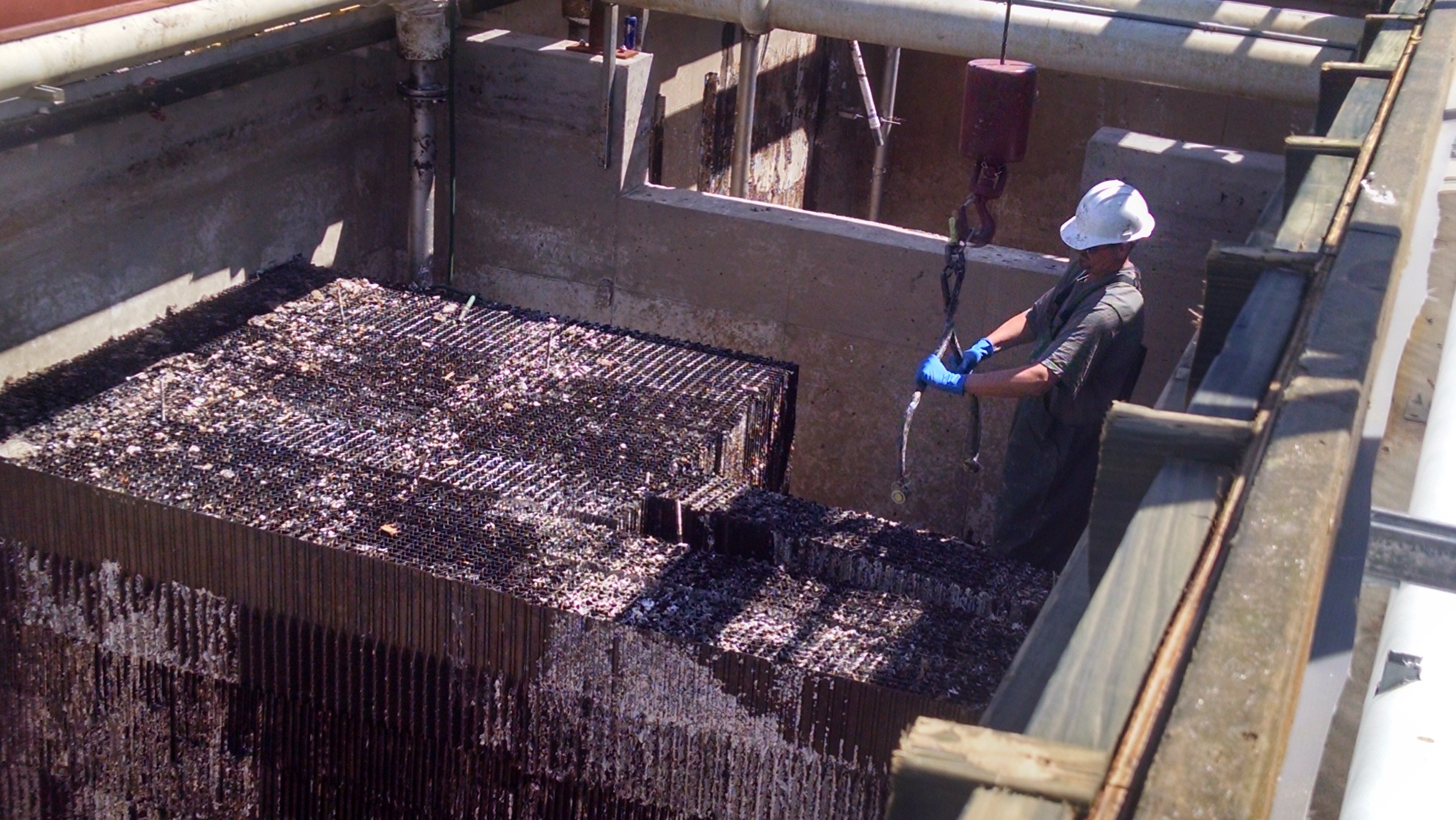At the conclusion of a 3-month study, AWES has identified a primary root cause of the terrible stench emitted by the 625 Chatham Street plant last year as being the progressive failure of media cells within the pretreatment tank.
To correct the problem, work crews for AWES removed several tons of the black plastic media cells from the concrete 175,000-gallon tank that were clogged with fats, oils and greases “very similar to the way that clogged arteries can cause someone to have a heart attack,” said AWES CEO Ross Pope.
Area residents may have seen the 50-foot crane at the plant last week that was used to remove the plastic media cells that were then placed in dumpsters and removed from the site -- the next step of what is expected to be about $1 million in modifications that AWES is overseeing to properly operate the Plant and meet the expectations of the Lowell community with regard to odors, Pope said.
“We are changing internal operation of the pretreatment system completely,” Pope said. “We won’t even be using the plastic media cells, which consumed 80% of the treatment tanks capacity.”
Daniel De Buhr, engineer who headed up the study to determine the root causes of the plant’s failure, said his team discovered that grease balls approximately 1 ½ inches in diameter were floating on the top of the pretreatment tanks last year during its operation. “There isn’t any way that this pretreatment plant should have been operating in that fashion,” De Buhr said. “Essentially, the neighbors were smelling a stench that comes from decay. The microbes were starved for oxygen and weren’t able to do their work.”
After uncovering the pretreatment tank and removing the plastic cells, De Buhr estimated that nearly 80 percent of the tank was clogged and not performing its function of breaking down wastewater from Litehouse Foods so that it could be sent to the Lowell wastewater treatment plant.
De Buhr said AWES will be moving to a suspended solids system where air will be bubbled up through the bottom of the tank so microbes will have sufficient oxygen to break down organic wastes from Litehouse.
